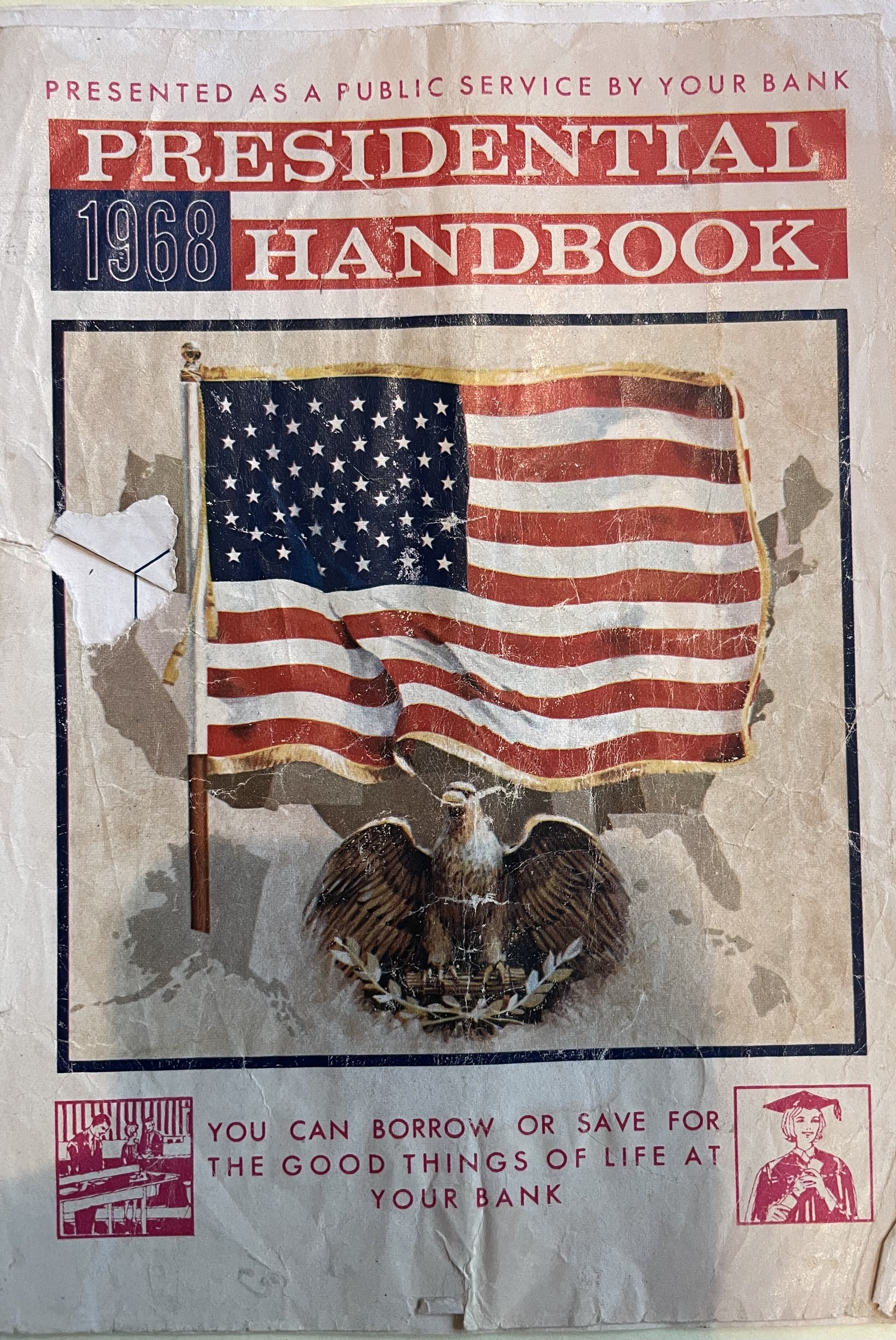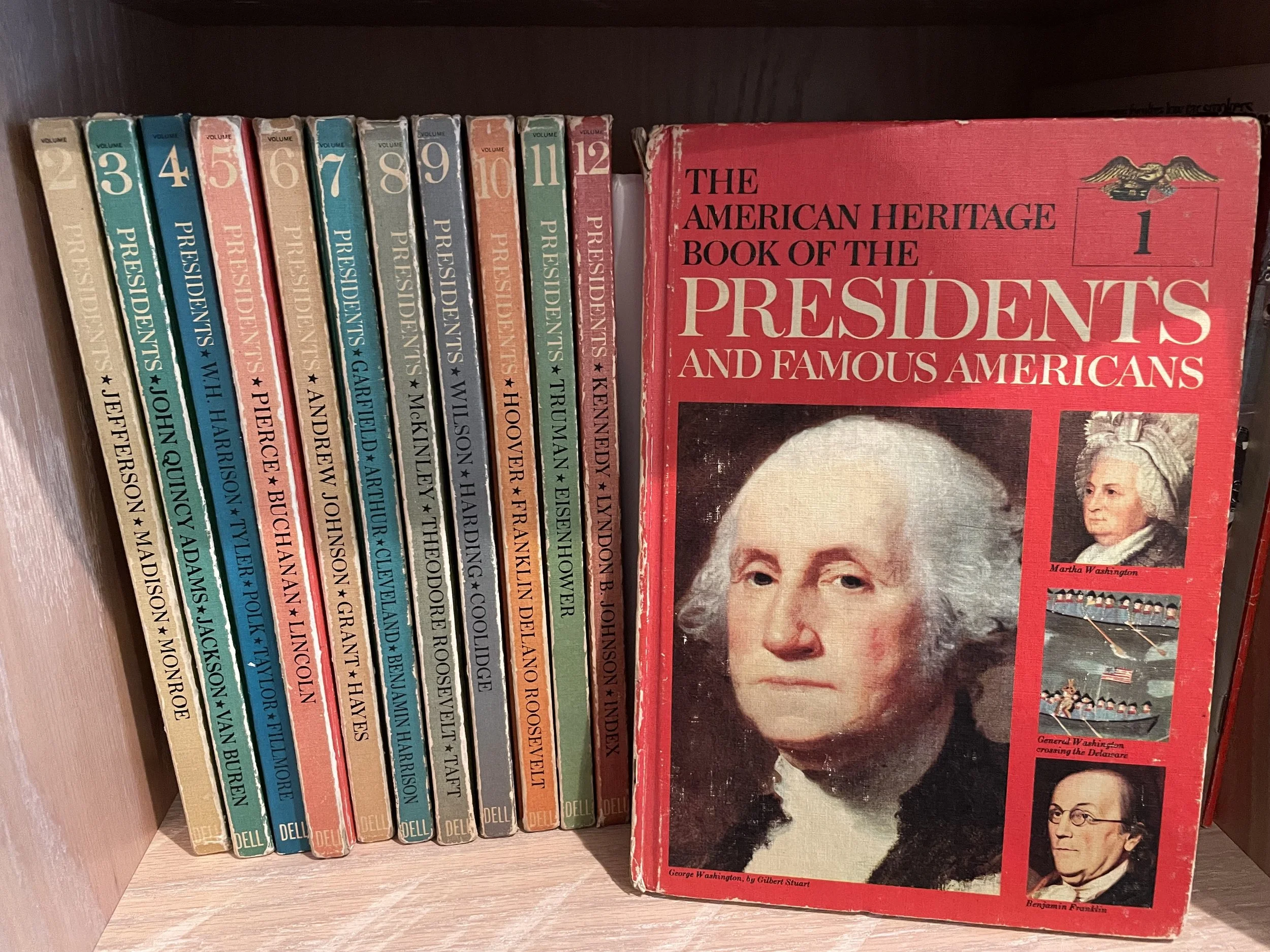As I’ve mentioned before, A Presidents Story Too was written very much with an eye on the coming election. So, you may want to buy a copy before the election for that relative or friend who is laboring under the belief that the issues, events, personalities or behaviors of today are novel or unique to our time in history. The book may or may not help, but it might buy you some peace while they are reading it.
Some excerpts from A Presidents Story Too will illustrate the point:
*
“Johnson refused to attend Grant’s inauguration. He also refused to give a reason but Grant knew it was because of Grant’s failure to clearly side with Johnson in the impeachment battle. A man more concerned with precedent and tradition than Grant would have been bothered that he was the first President since Andrew Jackson to not have his predecessor attend his inauguration. Grant was not that man and was, frankly, relieved to not start his time as President in a carriage with the petulant Andy Johnson.”
*
“In early 1876, Grant’s Secretary of War William Belknap was impeached by the House of Representatives. Belknap was accused of accepting bribes and the Senate prepared for a trial, just as it had with Andrew Johnson eight years earlier. Unlike Andrew Johnson, William Belknap was not inclined to fight. He quickly resigned before the Senate trial commenced. The Senate carried on with the trial but failed to convict Belknap, just as it had failed to convict Andrew Johnson. When Johnson was acquitted, there were not enough senators who thought he did anything wrong. That was not the case with William Belknap. All senators were quite sure that Belknap took bribes. But twenty-five senators believed that the Senate did not have the power to try an official once he was no longer in office.”
*
“The tariff was complex but it was the perfect political lodestar. His colleagues in the House would come to value his opinion on a critical issue. More importantly, the voters may not understand the precise meaning of tariff policy but they would understand when a congressman with expertise told them that a high tariff on imported goods was the only way to keep their jobs from being taken to other countries. The wealthy captains of industry would not care for high tariffs, but there were a lot more voters who worried about keeping their jobs than there were captains of industry.”
*
“Unlike most national conventions, however, when Taft was declared the nominee, the floor did not erupt in support, but in protest. In a momentary lull, a delegate yelled, “We want Teddy! No more stealing!”
*
“After Wilson’s stroke, Colonel House realized that the President was fighting not just for the League, but for his own sanity…
‘Ma’am, the President is in my prayers. I am at your service and will obviously see that the President’s work is uninterrupted as much as possible.’
Edith Wilson paused and gazed at House. “That will not be necessary Colonel. The President is resting but fully able to discharge his duties. I will see that he gets everything he needs.”
House was wary. “Members of the cabinet are asking whether it would be best for Vice President Marshall to take over temporarily.”
Edith’s eyes flashed before she reverted to serenity. “You may tell members of the cabinet what I said, ‘He is resting but fully able to discharge his duties.’ Now, if you will excuse me I need to get back to my husband.”
*
“Franklin Roosevelt was going to win the election. Prudently, he spoke in platitudes, assiduously avoiding any promised course of action. Instead, he focused on President Hoover and the government’s reckless spending and new programs that were doing nothing to help the ‘Common Man.’ It was this ‘Common Man’ that Roosevelt pandered to, promising a ‘New Deal’ at every campaign stop without explicitly stating the terms of the ‘Deal.’”
*
“Calvin Coolidge started slowly, dissecting the Democratic platform and its lack of a real plan. Wisely, he largely stayed away from mentioning Roosevelt. But, eventually, he could not resist:
‘The charge is made that the Republican Party and its candidates do not have any solicitude for the general welfare of the common run of people. Their nominee attacks the rich. This is odd, coming as it does from a man born to wealth.’”
If none of this seems familiar to you, I admit to being somewhat envious.


